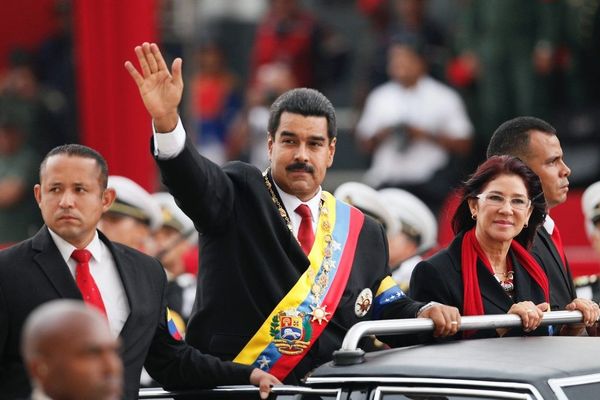The fifth North Korean nuclear test has left policy makers scrambling for both short term and long term solutions to a problem that, so far, has no solution. Many experts have called for a return to a multilateral negotiation framework such as the Six Party Talks. The Cipher Brief spoke with former Ambassador DeTrani, a special envoy to those talks, to see what lessons can be learned from previous attempts to talk to Pyongyang.
The Cipher Brief: The G20, ASEAN, Obama’s last visit in Asia, and North Korea’s Independence Day were all events concurrent with the nuclear test. How does the regional state of play factor into the decision to conduct a nuclear test?
Ambassador Joseph DeTrani: Historically, North Korea has conducted nuclear tests and launched missiles on anniversary dates, unique to the U.S. or North Korea. It’s therefore not surprising that the 5th nuclear test was on North Korea’s Independence Day. What’s more important, however, is that this test was in line with Pyongyang’s focus on nuclear weapon miniaturization and its efforts to mate miniaturized nuclear weapons to a missile delivery system capable eventually of reaching the United States. Thus this test was a message to the U.S. and its allies in South Korea and Japan that North Korea has nuclear weapons that could be used against these countries – and eventually against the U.S.
TCB: The Obama administration and the international community have increased sanctions since the previous nuclear test. What options are still available to policy makers? What is the likelihood we will see something above and beyond sanctions?
JT: It’s likely additional sanctions will be imposed on North Korea for its fifth nuclear test. These sanctions could be significantly more potent, targeting North Korea’s banking system and sanctioning those foreign banks dealing with financial institutions in North Korea. A tightening of sanctions on the export of coal, iron, and iron ore also are options. Concurrently, working with South Korea to ensure the timely installation of the Terminal High Altitude Area Defense system (THAAD). And with Japan to ensure that they, also, have the most advanced missile defense capabilities available.
TCB: In your experience, what did you view as the most productive approaches to dealing with North Korea over its nuclear program?
JT: North Korea’s continued disregard of UN imposed sanctions, with their nuclear tests and missile launches, requires timely and meaningful responses from the international community, which has been the case. There needs to be consequences for North Korea’s blatant disregard of UN sanctions. However, sanctions alone will not get North Korea to dismantle its nuclear weapons program in a comprehensive and verifiable manner.
Currently, it’s difficult to assess whether North Korea will ever agree to denuclearization, regardless of the security, economic aid, and normalization deliverables we may be willing to provide for comprehensive and verifiable denuclearization. However, we have to work harder and be more creative to determine if a peaceful, negotiated settlement is unobtainable. That means having another official meeting or meetings with North Korea, in a bilateral or multilateral setting, to determine if North Korea would be willing to halt it nuclear and missile programs. That should be our first goal – to halt these programs. With that, a dialogue to determine if North Korea is willing to discuss denuclearization, in return for security assurances and other deliverables. Returning to the September 19, 2005 Joint Statement would be ideal, as would the 1991 North-South Agreement that committed North Korea and South Korea to agreeing that neither would reprocess spent fuel rods (for plutonium) or enrich uranium.
TCB: North Korea’s nuclear program is likely to be a problem that the Obama administration will not be able to solve with the time remaining to it. What can the next administration do from Day 1 that could find more success in addressing North Korea’s nuclear program?
JT: From day one, the new administration could make it clear to North Korea that they are willing to enter into unconditional talks to determine if North Korea is again willing to discuss comprehensive and verifiable denuclearization in return for security assurances and ultimately, normal diplomatic relations. The administration could make it clear that the U.S. is not hostile to North Korea and does not seek regime change. Rather, it seeks a peaceful resolution to the nuclear issue.









